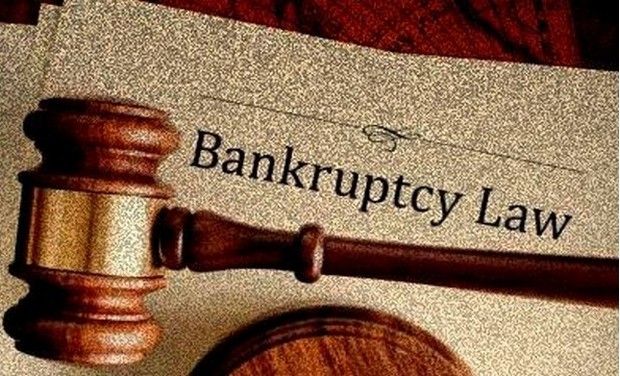Claims under Non-Invoked Corporate Guarantee has to be admitted under I&B Code

In a landmark judgment[1], National Company Law Appellate Tribunal (“NCLAT”) settled law under Insolvency and Bankruptcy Code 2016 (“IBC”) in respect of claims arising out of counter corporate guarantee and non-invoked guarantee.
IBC mandates Resolution Professionals (“RP”) to make a public announcement, requesting creditors of corporate debtor to raise claims against the debtor immediately after admission of Corporate Insolvency Resolution Process (“CIRP”).
In the current matter, NCLAT clubbed two appeals, which are preferred: (i) by Export Import Bank of India or Exim Bank relates to Corporate Insolvency Resolution Process initiated against JEKPL Private Limited; and (ii) by Axis Bank Limited relates to Corporate Insolvency Resolution Process against EduSmart Services Private Limited.
Exim Bank: Fact
In the Exim Bank case, CIRP has been commenced against JEKPL Private Limited (“JEKPL”) on an application field by itself. Exim bank filed its claim before RP on ground of a claim arising out of a counter corporate guarantee issued by JEKPL in favour of Exim Bank securing a corporate guarantee issued by one of its group company, Jubilant Enpro Private Limited (“JEPL”), in favor of Exim Bank. JEPL issued the corporate guarantee to guarantee the loan disbursed by Exim bank to some other group companies, who were the principal borrowers of Exim Bank. Upon default of the loan by the principal borrowers, Exim bank invoked both corporate guarantee and counter corporate guarantee on the ground that both corporate guarantor and counter corporate guarantor are jointly and severally liable for the default.
The RP rejected the claim of Exim bank on the ground that ‘counter corporate guarantee’ does not fall under the definition of financial credit. National Company Law Tribunal (“NCLT”) upheld the view of RP; hence the appeal was filed before NCLAT.
It was submitted on behalf of the RP that ‘Financial Debt’ as defined under Section 5(8) of IBC means a debt, which is disbursed against the consideration for time value of the money. The EXIM bank has not disbursed any amount (including interest) against the consideration for time value of money to the ‘Corporate Guarantor’ i.e. JEPL or the ‘Counter Corporate Guarantor’ i.e. JEKPL. The Corporate Debtor (JEKPL) has only furnished ‘Counter Corporate Guarantee’ for due performance and discharge of JEPL’s obligations and liabilities in respect of Corporate Guarantee furnished by it. It was also argued that a counter indemnity obligation will fall under the definition of ‘financial credit’ only if it is furnished by a financial institution and not a company. Further, it was also submitted that liability under Counter Guarantee would come into effect only if the Corporate Guarantor (JEPL) is defaulted.
Axis Bank: Facts
In the Axis bank case, CIRP commenced against EduSmart on an application made by DBS bank. EduSmart issued a corporate guarantee in favor of Axis bank. The bank filed its claim before the RP on the basis of this corporate guarantee. However, RP rejected the claim on the ground that the corporate guarantee was not invoked at the time of initiation of CIRP.
It was contended before the NCLT that corporate guarantee cannot be invoked during ongoing CIRP and resulting moratorium period. It was argued that claims, which are due and payable before the commencement of the CIRP can only be taken into consideration. In case of a guarantee, the debt becomes due only when a creditor invokes a guarantee. Axis bank did not invoke its corporate guarantee given by the corporate debtor; hence no amount was due.
NCLT upheld the view of RP and held that the claim of Axis bank was contingent on the date of commencement of CIRP; therefore, the same cannot be accepted as ‘Financial Debt’ of the corporate debtor. NCLT further held that moratorium imposed under Section 14 of IBC in respect of Corporate Debtor applies at time of invocation of the Corporate Guarantee.
Judgment
In the Exim bank matter, NCLAT rejected the contention that counter corporate guarantee does not fall under the definition of ‘financial debt’. NCLT held that such counter corporate guarantee has been given by JEKPL in favor of Exim bank, as the bank disbursed the debt against the consideration for the time value of money in favour of the principal borrower. Hence, claim of the Exim bank falls under the definition of financial credit. NCLAT also considered provisions of guarantee document, which stated that both the guarantor and counter corporate guarantor are liable, jointly and severely, as principal borrower. Hence, argument that corporate guarantor is not defaulted is rejected. It also rejected the contention that counter indemnity obligation will fall under the definition of ‘financial credit’ only if it is furnished by a financial institution and not company.
In the Axis bank matter, NCLAT differentiated the difference between the definition of ‘default’ and ‘claim’ under the IBC. Existence of ‘default’ is a condition precedent for admission of insolvency proceeding under IBC. However, default has nothing to do with acceptance of claim after admission of insolvency proceeding. Any person who has right to claim payment, under the IBC, is supposed to file the claim, whether matured or immature. The question as to whether there is a default or not is not relevant. Accordingly, RP is obliged to accept the claim under corporate guarantee, whether it is invoked or not.
[1] Company Appeal (AT) (Insolvency) No. 304 of 2017
By entering the email address you agree to our Privacy Policy.



